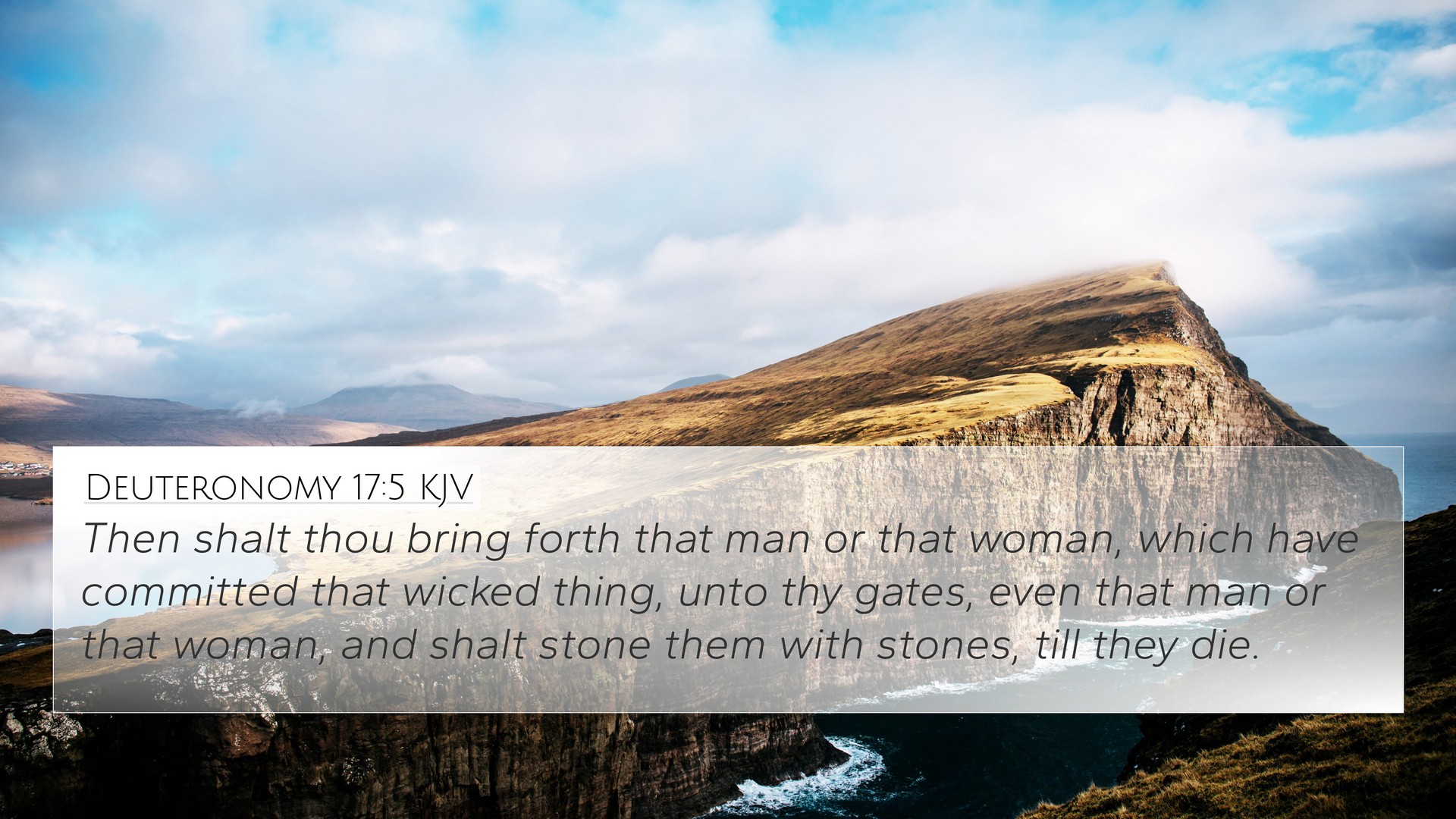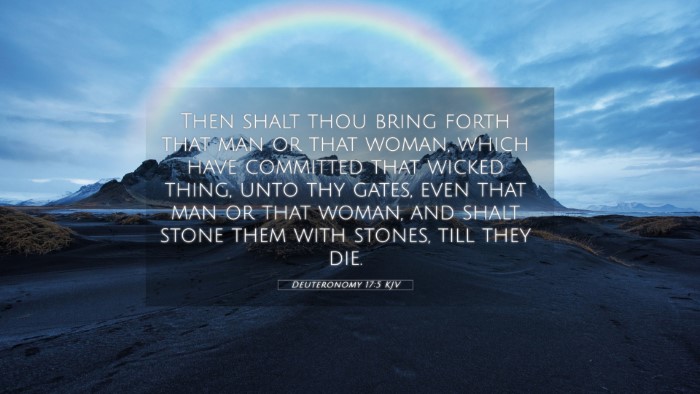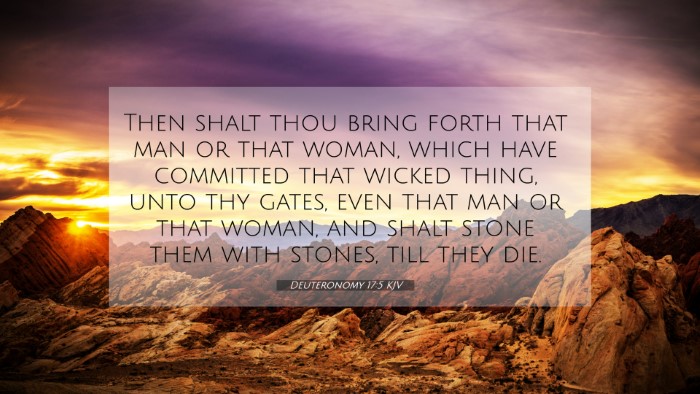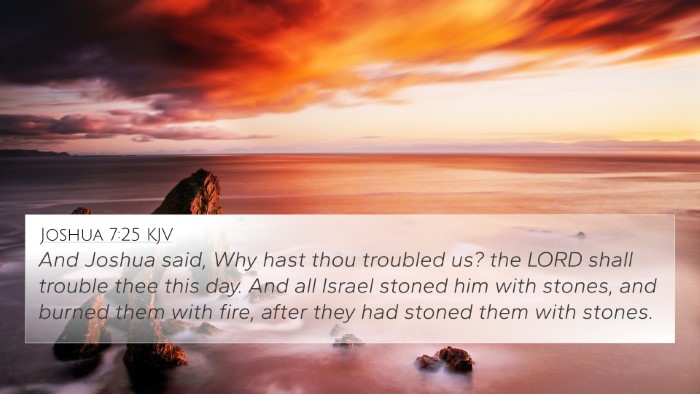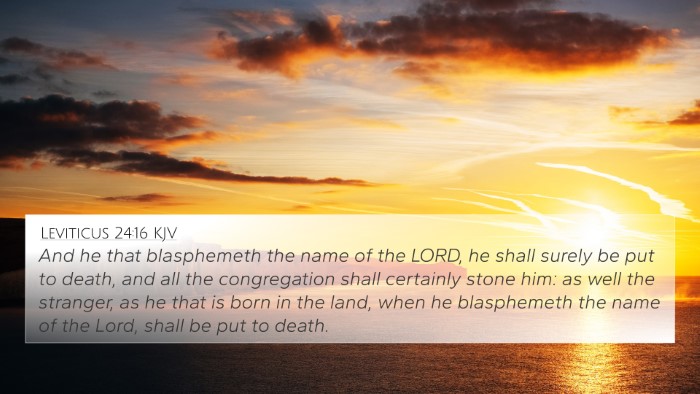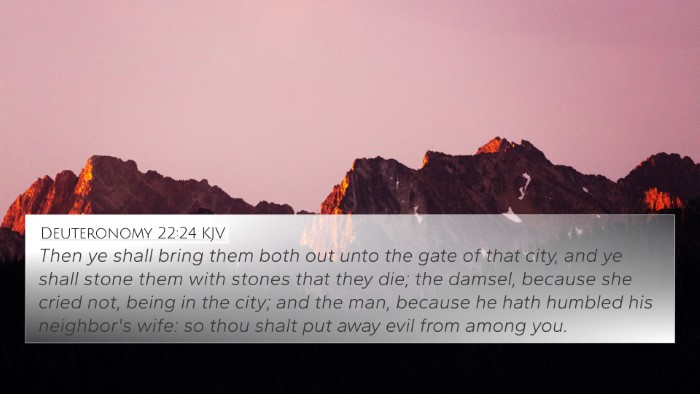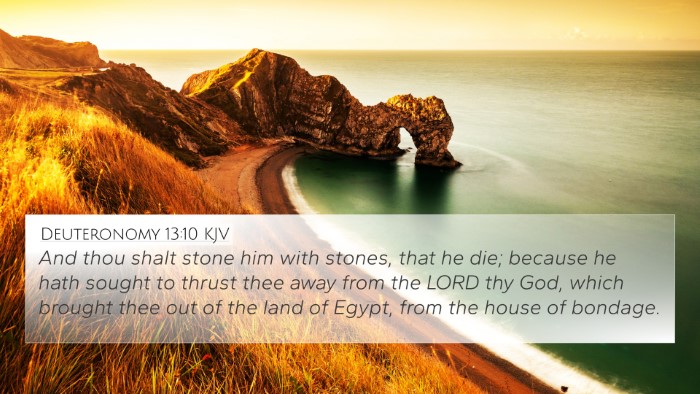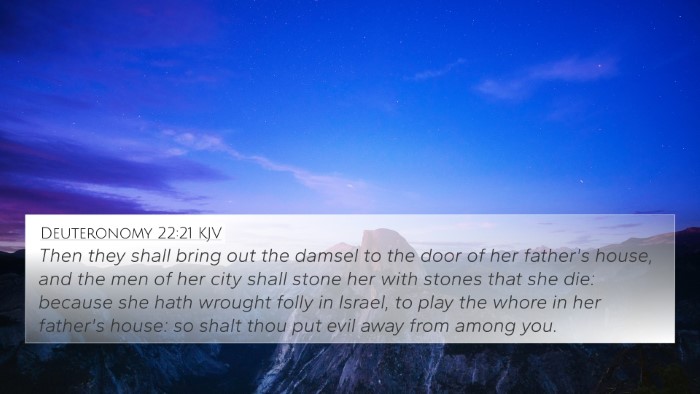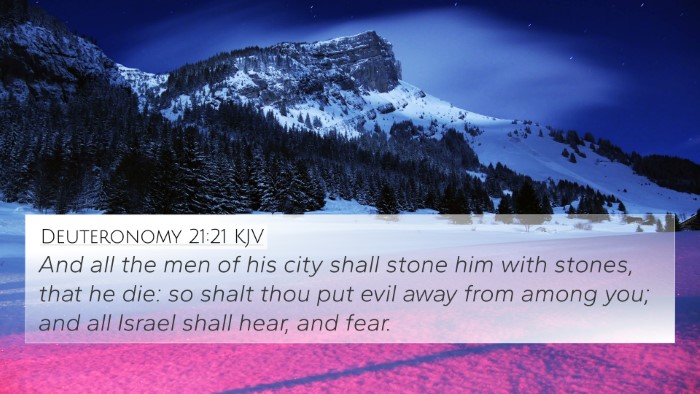Understanding Deuteronomy 17:5
Verse: "Then you shall bring out to your gates that man or woman who has committed that wicked thing, and you shall stone to death that man or woman with stones." (Deuteronomy 17:5)
Meaning and Interpretation
This verse addresses the procedure for dealing with those who have committed serious violations of God's law, particularly against the community and its moral fabric. The act of stoning is seen as a legal and communal response to sin, emphasizing the need for justice in maintaining societal order. In this interpretation, several public domain commentaries provide insights:
- Matthew Henry: Henry highlights that God's law not only protects the community but enforces accountability. He stresses the importance of communal decision-making in matters of moral significance.
- Albert Barnes: Barnes notes that the emphasis here is on the severity of sin and the calling for a decisive action to deter wrongdoing. He elaborates on the idea that such actions should not be taken lightly or without process.
- Adam Clarke: Clarke elaborates on the significance of the gates as a place for public trials and decisions, linking this practice to community integrity and unity in moral enforcement.
Thematic Connections
This verse connects with several themes prevalent throughout the Scriptures, establishing patterns of justice and moral law. Notably:
- Moral Accountability: This verse emphasizes the communal responsibility in upholding God's law, linking it to other verses that speak about justice and righteousness.
- Community Purity: Similar to Matthew 18:15-17, where Jesus instructs handling sin within the community, Deuteronomy 17:5 is centered around protecting community integrity.
- Judgment and Mercy: This verse raises the balance between justice and mercy, comparable to Romans 13:1-4, where authorities serve as God's agents for punishment.
- Public Trials: The gates symbolize authority and judgment, akin to how judicial matters are discussed in Proverbs 31:9, calling for fair judgment.
Cross-References for Deuteronomy 17:5
Exploring the connections between this verse and others can enhance understanding:
- Exodus 22:18: "You shall not permit a sorceress to live." - This establishes serious consequences for serious moral violations.
- Leviticus 20:2: "Any of the people of Israel, or of the strangers who sojourn in Israel, who gives any of his children to Molech shall be put to death." - Similar judicial procedures for severe sins against God's commands.
- Matthew 18:15-17: The steps for resolving disputes mirror the community-focused approach in Deuteronomy.
- Romans 13:1-4: Speaks to the authority instituted by God to carry out justice, similar to the judicial system in ancient Israel.
- Proverbs 24:24: "Whoever says to the wicked, 'You are in the right,' will be cursed by peoples, abhorred by nations." - Illustrating the need for community action against wickedness.
- 1 Corinthians 5:5: "You are to deliver this man to Satan for the destruction of the flesh, so that his spirit may be saved in the day of the Lord." - An echo of the communal handling of sin in the New Testament.
- Galatians 6:1: The call to restore a transgressor gently relates to community responsibilities in moral matters.
Conclusion
The interpretation of Deuteronomy 17:5 showcases the inherent need for a structured approach to justice within the community. It echoes through various scriptures that demonstrate God's desire for a holy and just society. When exploring the connections between Bible verses, one finds a cohesive narrative of accountability, community integrity, and the seriousness with which God regards moral failings.
Tools for Bible Cross-Referencing
For those interested in delving deeper into cross-referencing Biblical texts, various tools are available. Utilizing a Bible concordance can help identify themes and connections effectively.
Through comprehensive Bible cross-reference materials, readers can explore detailed links between verses, enhancing their understanding of scripture as a unified whole. The practice of cross-referencing Bible study methods can also deepen personal or group study sessions.
